Receive Focus insights straight to your inbox
The world’s first middle ear transplant using 3D-printed bones has been performed in South Africa, and drones are delivering medical supplies to rural communities in Rwanda. Kenya’s mobile money services’ giant Mpesa is banking the unbanked allowing millions to financially transact.
In Uganda, biomedical smart jackets are helping doctors diagnose pneumonia faster, and in Nigeria, crowdsourcing is financially supporting thousands of farmers.
In education, youngsters are learning to code and build robots while blockchain is decentralising services in many sectors across Africa.
In this podcast that was recorded at the Institute for Security Studies’ seminar on Africa’s fourth industrial revolution, leaders in the field spoke to Investec Focus about what this disruption means for the continent.
Listen to podcast
Is Africa ready for 4IR?
The term “fourth industrial revolution” was coined by founder and executive chairman of the World Economic Forum (WEF), Klaus Schwab, who defines it as being “characterised by a fusion of technologies that is blurring the lines between the physical, digital and biological spheres".
It is unfolding in Africa, dominating news headlines and conversations and topping conference agendas. But is the continent ready for the exponential nature of the change that’s impacting us? And how inclusive will the 4IR revolution be here?
There are many exciting examples of how technology is transforming lives, but for it to truly transform society, Africa still needs to ensure people have access to the basics like clean water, electricity, healthcare and good infrastructure.
“We can now get a banking app to a rural person through a smart phone, we can get medical data from a community to a hospital and to a practitioner. But in the context of Africa, we don’t often have electricity or infrastructure or the industry to support that technology,” says Marius Oosthuizen from the Gordon Institute of Business Science.
"We don’t often have electricity or infrastructure or the industry to support that technology."
“And so, if we are going to have a meaningful conversation about industry 4.0 in Africa, we really have to have a conversation that stretches across industry 1.0, 2.0, 3.0 and 4.0. Let’s ask ourselves, how do we unlock productivity? And how do we unlock the growth that Africa would need to transform?”
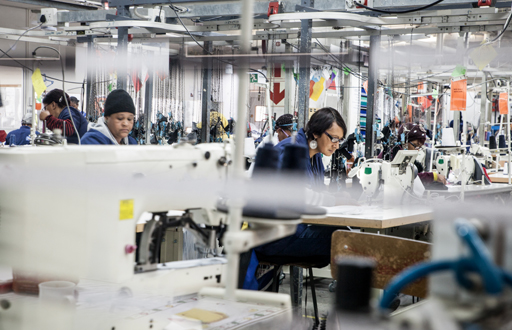
Many people are worried about job security in the fourth industrial revolution
Will jobs be secure in the fourth industrial revolution?
It is clear that exponential technology is changing our lives, mostly for the better. When was the last time you stood in a bank queue or drove your own car to a party? And how often are you now using your phone to conveniently tap and pay for coffee?
In Rwanda, Volkswagen is currently testing a ride-hailing app that will soon introduce electric cars to its fleet. And closer to home, President Cyril Ramaphosa has shared his dream of creating a smart city in South Africa.
Supermarkets will soon be able to operate without cashiers, smart electricity grids are cutting out the middleman and there won’t be a need for call centre operators in a world of AI-powered bots.
There is a lot of talk about automation enhancing the way we work, but on a continent with such severe unemployment, can we afford to lose any jobs?
“Are your jobs being taken? Maybe they have been displaced somewhere else. Jobs are not destroyed, they are just displaced. The challenges for us in our part of the world is - how do we capture the displacement?” said Dr Martyn Davies, Dean, Deloitte Alchemy School of Management.
If states are able to create an enabling environment with good governance and rule of law, countries could capitalise on the opportunities presented by 4IR and solve their unemployment problems, says Oosthuizen. “Africa has tremendous natural resources and huge untapped potential in the labour market. Technology can enable us to very quickly access that resource and human capital potential.”
South Korea: a case study in human-centric development
Sixty years ago, war-torn South Korea was one of the poorest countries in the world with little access to foreign aid. Today it has transformed itself into one of the leading economies by focusing on their human capital, investing heavily in education and creating a strong manufacturing sector, all underpinned by the latest technology.
“I think we learned the lesson that crisis can be opportunity. We went through such a big crisis after independence and the Korean war, and we are not blessed with the natural resources that many developing countries enjoy; we only had human resources to rely on,” says Dr Jong-dae Park, the Republic of Korea’s Ambassador to South Africa.
Davies agrees that a focus on human talent is the key to economic success pointing to Asian countries who turned down large sums of Foreign Direct Investment if it came without Intellectual Property (IP). “It’s not the capital per say; it’s the IP that accompanies it, and how that IP, the talent and people, are embedded in the domestic economy. That IP is then diffused into broader society, and retained. That is the secret sauce of developmental success.”
The ambassador explains that South Korea developed human-centric policies in adopting 4IR. “It is about inclusive growth. On one hand it addresses industries: how we can move forward and scale up into the fourth industrial revolution. But equally important we need to solve social problems like health, unemployment, environment, security and all the issues that come with advanced development and capitalism.”
However, in the case of Africa, Ambassador Park, who has lived on the continent since he was a teenager and has written a book titled “Re-Investing Africa’s Development”, says that there is much more that still needs to be done to support a framework in which industry 4.0 can thrive.
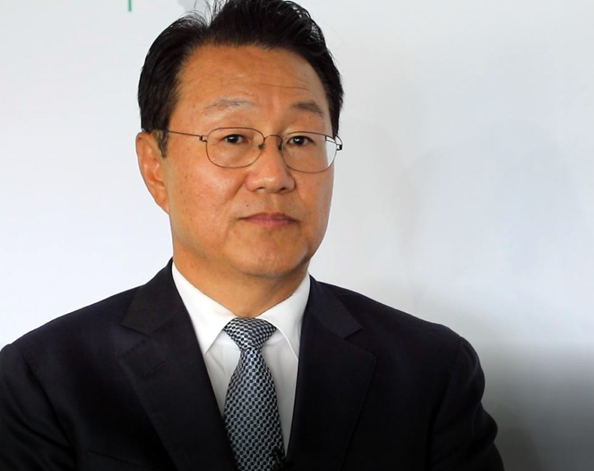
In the case of Africa, where people suffer and things break down not because of too much government but because of a lack of proper services that are so basic to the fundamentals of an economy. That’s the issue.
Change will come from smart cities
Africa is urbanising faster than any other part of the world. It is estimated that African cities will double in population by 2050. Davies believes that it is in the melting pot of these cities where the necessary ecosystems can develop to maximise on the opportunities created by 4IR.
“It’s competitiveness that comes about through the linkages, and connectivity within a deeper ecosystem, that talks to governance issues, political enabling issues, infrastructure issues, education, intellectual property etc. It’s not so much a country story, as it is a city story, increasingly; how do cities become more competitive, by creating these thriving ecosystems, if you will,” said Davies.
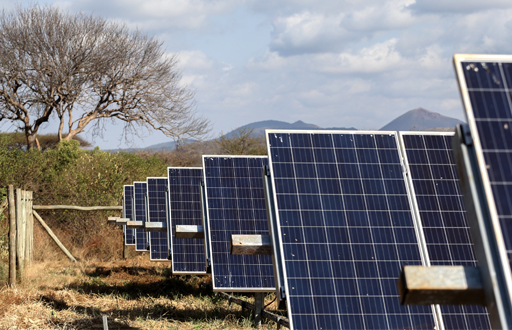
Renewable energy is lighting up millions of homes across Africa
The digital divide
Proponents of industry 4.0 say that its greatest promise is to improve peoples’ lives through the delivery of services like better access to healthcare.
“In the context of Africa, we have to think, not in a sequential way, but in an integrated way, and what’s exciting about that is, we can use the 4th Industrial Revolution to bring clean water and renewable cheap energy in a circular economy to individuals that don’t have those services. In the process, not only can we unlock value for the community, but for entrepreneurs and the businesses that bring those solutions to those communities,” says Oosthuizen.
However, critics argue that the exponential technology is widening the gap between the rich and poor.
“The technology is neutral, it’s really the question of how we use that technology. Do we use it to only service the high-end of the market, in ways that are exclusive, or do we take that technology and think about things like inclusive banking and education, and how to develop an economy that’s accessible to individuals with low adoption rates around the technology itself,” said Oosthuizen.
Going back to the example of South Korea, Ambassador Park says that their success was only possible due to a strong government that tackled social problems. “I think that’s the way to get the full support of the people, and also to have support from the international community.”
The role of the state
In the creation of a business-friendly, innovation-fuelled economy, the question arises as to what the state’s role is. How much control of the revolution can government take?
“The state doesn’t have to be interventionist in markets, rather it can be a facilitator that provides the setting for the private sector to fully engage itself in economics as a service provider,” said Park.
A shining example of such state-led economic transformation using technology is Africa’s poster child Rwanda. Only a few decades on from a horrific genocide, the country is now one of the continent’s fastest-growing economies.
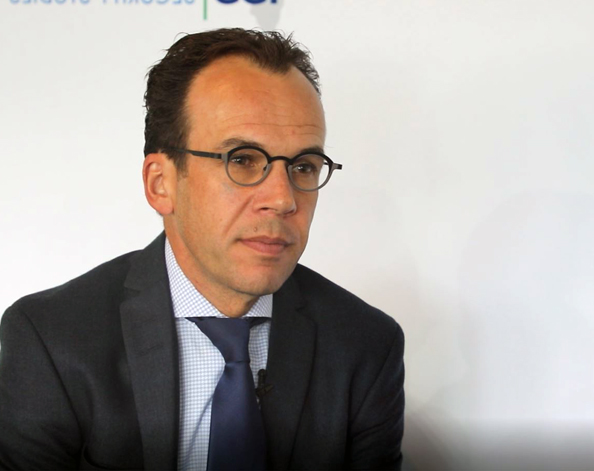
Rwanda is a very economically, commercially-minded state that is attracting foreign investment, foreign companies, IP, and people. It is the first country in Africa to adopt visa-free access.
“Rwanda sees itself as test-bed for technologies and then scales beyond that. Almost like a mini Singapore, a mini Israel, if you will. The state fully understands business and seeks to integrate it into its own developmental model and trajectory.”
Digital education in rural SA
With the advent of the fourth industrial revolution, digital education has taken centre stage.
However, as urban school learners are more exposed to opportunities of digital education – rural learners are often left behind in a rapidly changing world.
The GWF Open Learning Academy reaches more than 5,500 scholars per week from 20 schools. A further 440 youth are enrolled annually in adult learning and career training academies.
The foundation works with Stanford University to provide cloud-based learning and to deliver world-class education.
About the author
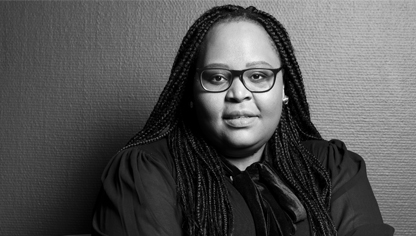
Lenyaro Sello
Digital content specialist
Lenyaro is a key member of Investec's Global Content team, based in Johannesburg, who focuses on relevant and topical issues for internal and external audiences including clients. She is a well-travelled multi-skilled multimedia journalist who previously held roles within eNews Channel Africa (eNCA) and Eyewitness News (EWN).




